Mega Foods makes 'everyday' products for TT, region
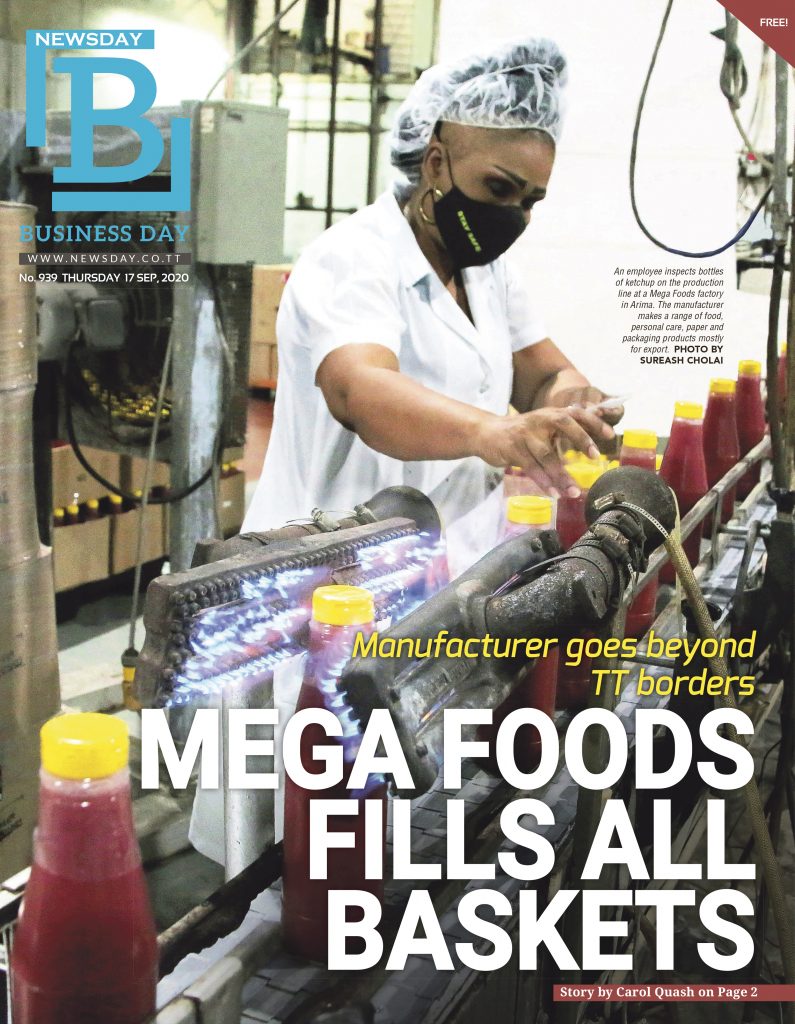
Many local businesses are feeling the effects of the financial pinch brought on by the covid19 pandemic, with some of them being forced to permanently close their doors or send home workers.
But for the O’Meara Road, Arima-based Mega Foods, it’s just the opposite.
“The pandemic hasn’t affected us at all in the sense that our production is basically export. So if the export market is not affected we are not affected. It hasn’t been. We sell about than ten per cent of what we produce in TT and we export 90 per cent of what we produce.
“On the contrary, it is better than normal purely because we have been able to increase our sales in all the islands,” Michael Amar, the company’s manager responsible for production and repair and maintenance, told Business Day. He credits this to the fact that the company sells “everyday” products.
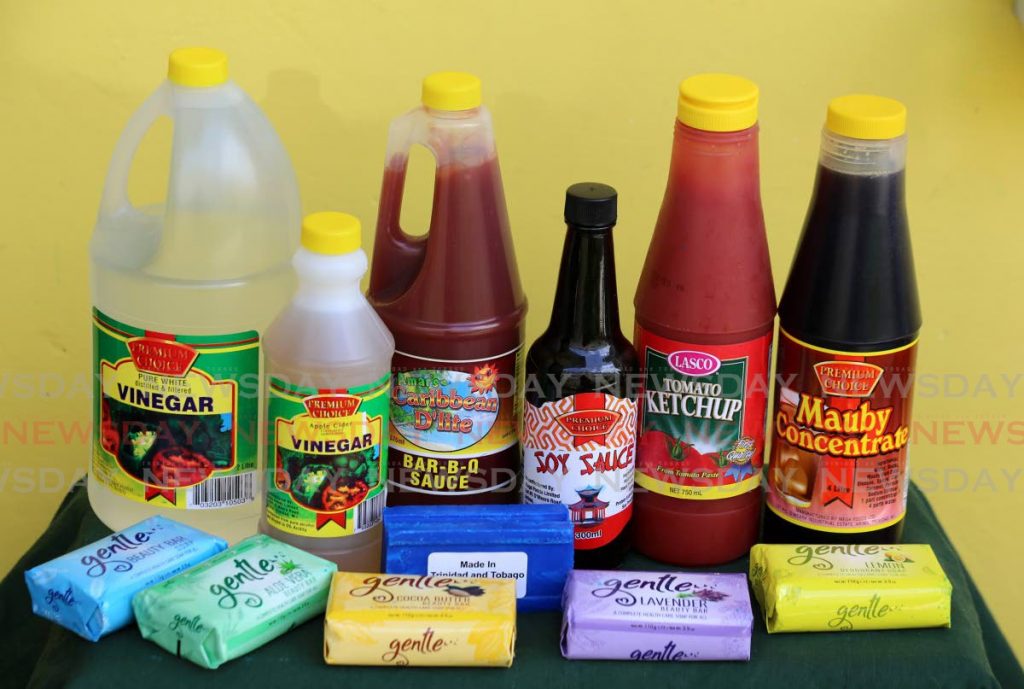
“We are not selling luxurious items. We sell things like tomato ketchup, pepper sauce, vinegar, barbecue sauce. Basic food items you will put in your food basket when you visit the grocery.” The ten per cent local sales distribution is handled by Trinidad Import and Export Co Ltd and the products are available in supermarkets throughout TT.
Mega Foods, Amar said, has four manufacturing divisions – plastics, paper, food products and personal care. The latter was launched in January, and Amar said the products – blue washing soap and hard bath soaps – are already being exported to Grenada, St Vincent and Antigua.
“Soap is an international product. You can sell it from Australia to Zimbabwe. If the price is right and the quality is good, the world is the market.
“Our soap is very natural. We have five ingredients, unlike other soaps. The purpose of soap is to clean and moisturise. We are using the moisturising palm oil at 65 per cent and our ingredients between fat and other additives is less than five per cent.”
The bath soaps come in six different scents and are marketed under the Gentle brand. The scented blue soaps are sold under the Blue Angel brand.
The company produces 5,000 blue soaps and 6,000 bath soaps per shift and Amar said there are plans to expand the range to include spray starch, air fresheners, liquid detergents and fabric softeners.
“This brand will be a household name in the next few months.”
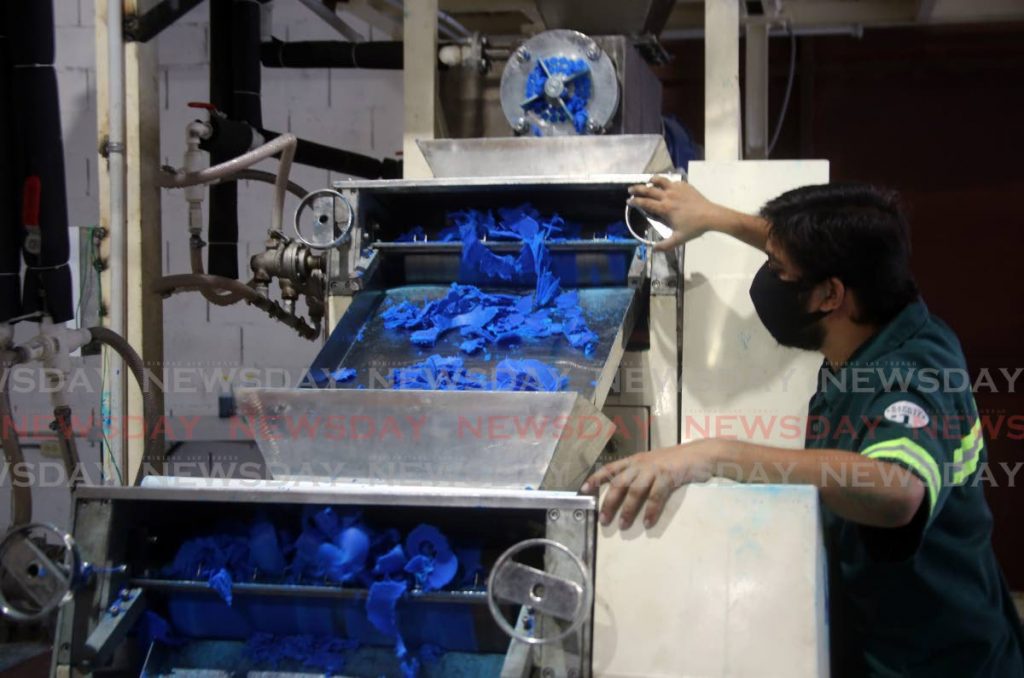
Mega Foods was registered as a limited liability company in 1994 and eventually acquired the assets of its affiliates Ramak Industries, Premium Paper Products and Best Foods Company. The family business has four factories and two warehouses, with a lab in each warehouse. It employs 75 workers – 65 at its factories and ten for distribution (delivery drivers etc).
And although it exports most of its products, all are manufactured and packaged in TT.
“We are contract manufacturers. In Jamaica we manufacture a brand called Lasco. In St Vincent we manufacture for Gojals. In Grenada and Antigua we have our own brand, Premium Choice. That’s our house brand. In all the other islands we sell Premium Choice and we have another house brand called Kissam. In Canada we do a Canadian house brand called West Indian Pride.”
Amar said under Ramak, the company first started manufacturing plastics – food containers, coat hangers, cereal bowls.
“We went from containers to plastic films to bottles to bags. We started having difficulty selling them, so we went to convert ourselves to filling these products and this is how the food division came into being. This was somewhere in the early 90s.”
“We are backward integrated into our factory. We make the bottles, we make the boxes, we fill the bottles,” which makes the company more self-sufficient.
“We are using 90 per cent of what we produce for ourselves. We are a net exporter. It’s about controlling our cost, plus we are one unit, so we don’t have to depend on anybody else,” except for the bottle covers.
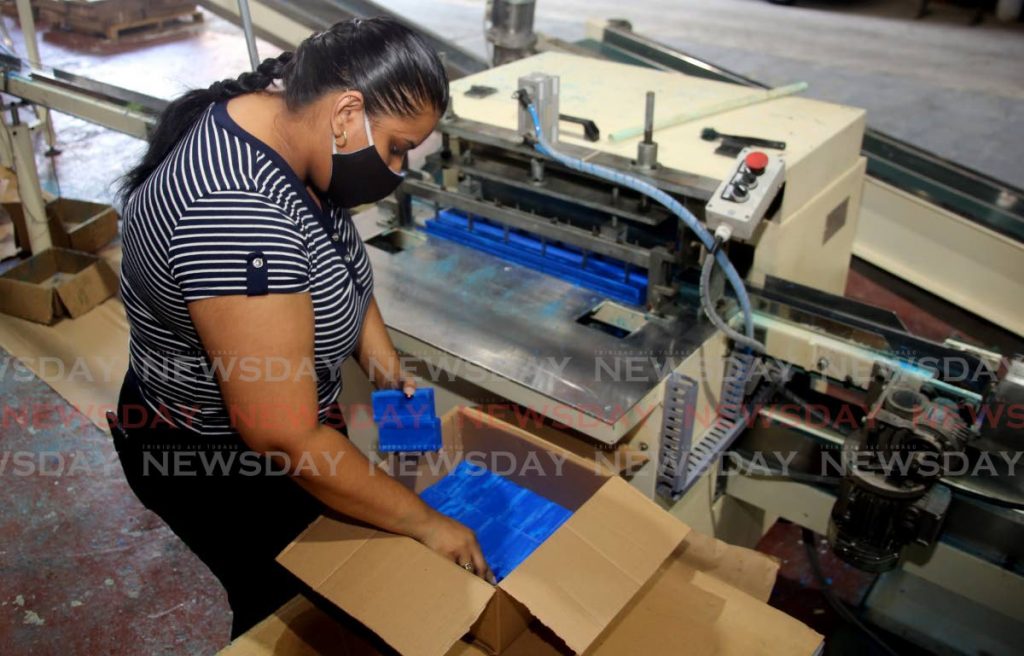
He said the company used to produce the covers for the bottles, but it’s cheaper to buy them. “We had to work three shifts to produce the quantity of covers we needed,” which did not make economic sense.
Amar said because of its negative impact on the environment, he foresees the use of plastics dying in the next five years. “We will eventually have to find a replaceable product.”
The paper division manufactures corrugated cartons and trays, bathroom tissue, paper towels, napkins and food boxes.
The food product division produces a range of products, among them soy sauce, Worcestershire sauce, chow chow, mustard, mayonnaise, kuchela, mauby and sorrel concentrate, green seasoning and fruit drinks.
Mega Foods, Amar said, does not make compromises when it comes to the specifications under which all its products are manufactured. He said the company sources as much of the raw material as it can locally, and the rest is imported.
“Before we make any product, there is a worksheet giving you the formula, code, date of production, quantity, type of packaging, and all the test results. Before the product is even packaged in a bottle it means those test results have to be in place and it has to be certified that this is what we agree with in terms of specifications. Only then is it packaged, labelled and sent to the customer.
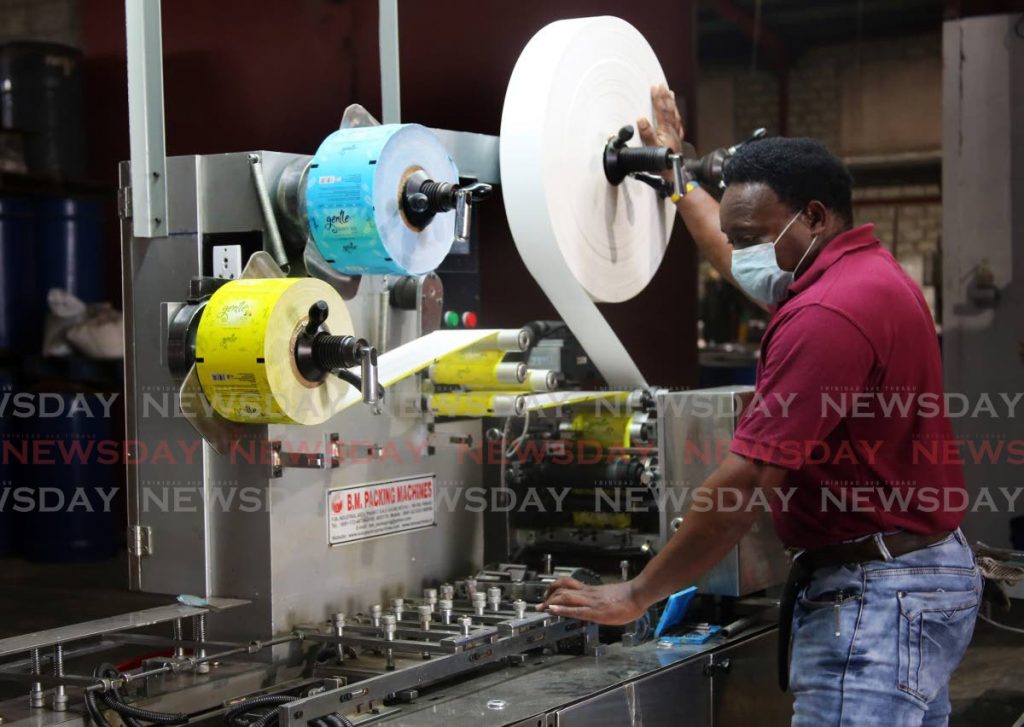
“Everything must be consistent. Every item we make goes through the same rigid specification checkpoint. And everything going out must meet the customer’s specification.”
He said especially with food, because taste differs from culture to culture, there will be a different specification for each country to which the products are exported.
“Input is controlled so that when you get the output, you’re sure of what you’re getting.”
He said the company has plans to expand the food line to include high-end salad dressings.
“But that will not be for the Caribbean market, but for the North American market.”
Why North American?
“It goes well in a society that has no time. It will be a unique product because we are going to go into flavours like oranges, five fingers, mangoes, pineapples, guavas. We are not going to sell you olive oil and something. We are looking at unique Caribbean flavours.
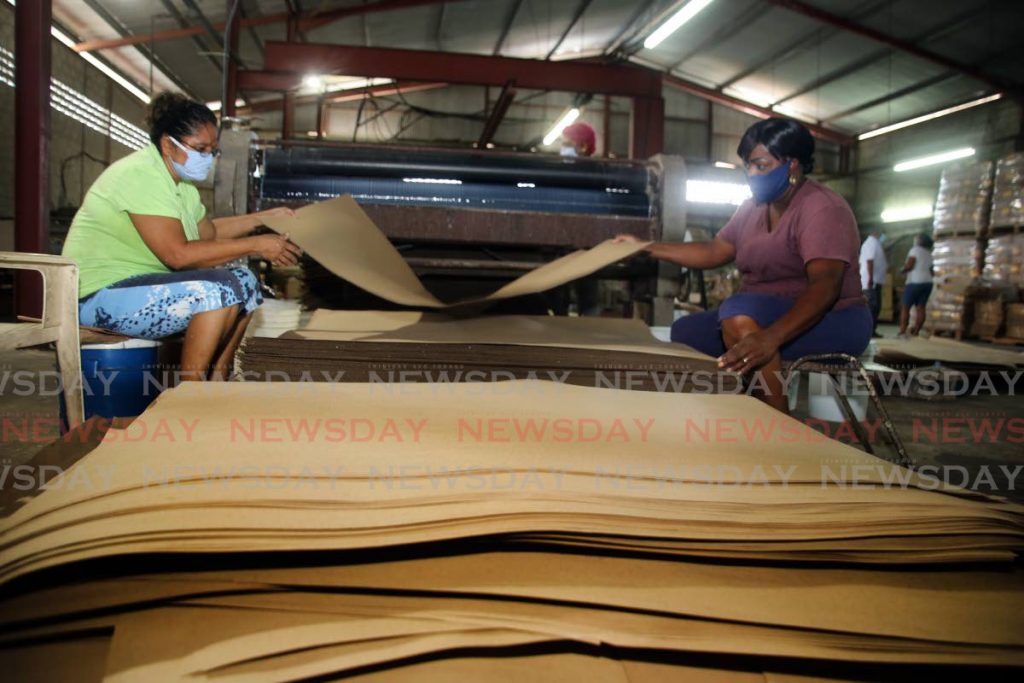
He said Mega Foods’s success can be attributed to the fact that it understands its markets and adapts to suit.
“The higher the population the more consumption, but we cannot make one fit for all, so we have to make very unique products for different markets. And that goes true to any product you make.
“Market research is important. Our ketchup is not the same for every island. Jamaica wants more tart, Barbados wants sweeter, St Vincent wants less sweet, so every country we sell to has a different formula. We modify what we have for each market.”


Comments
"Mega Foods makes ‘everyday’ products for TT, region"